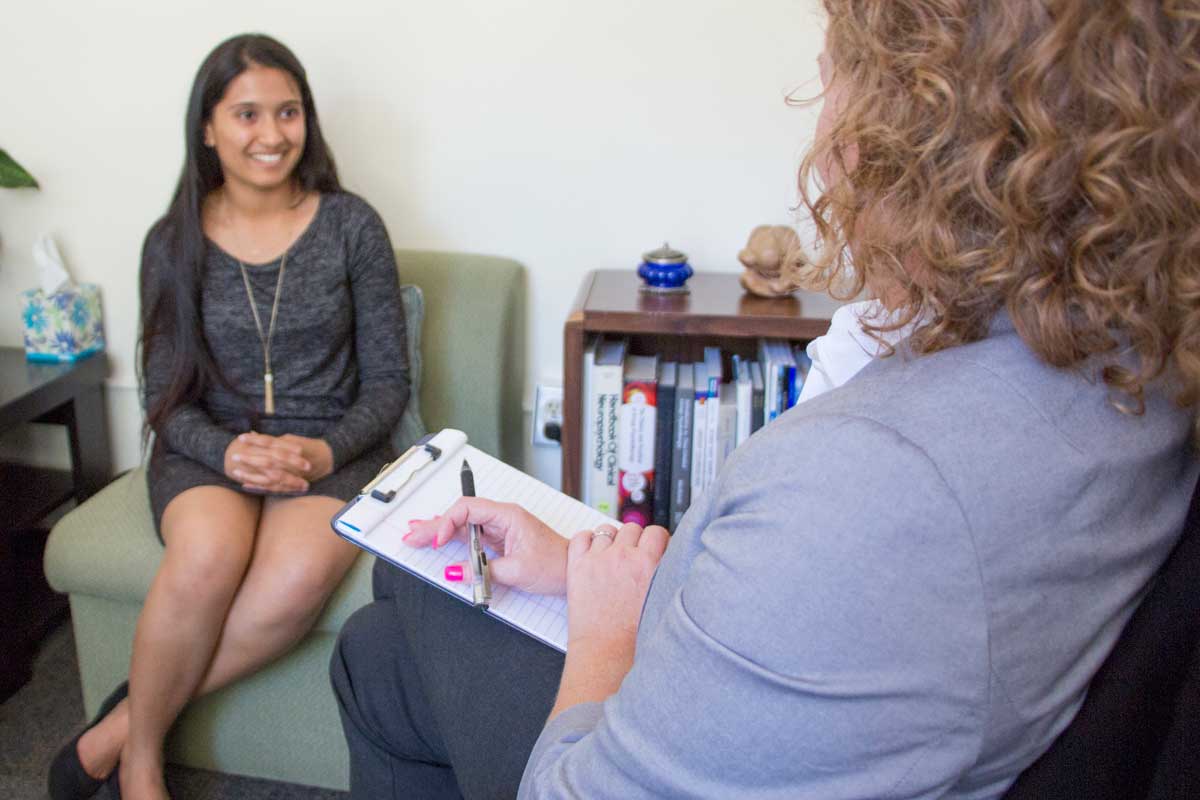Checking out the Advantages of Mental Therapy for Adolescent Wellness and Growth
Psychological treatment plays a pivotal duty in the well-being and development of young adults. Teenage years is a turbulent period marked by emotional and social obstacles. Treatment provides an organized atmosphere for teenagers to express their sensations and face their struggles. It outfits them with important tools for strength and communication. As they navigate this developmental stage, the influence of therapy can be extensive. What particular benefits can arise from such assistance during these formative years?

Recognizing the Teen Mind: Challenges and Pressures
As teenagers navigate the complexities of their developmental phase, they face many obstacles and pressures that can significantly impact their psychological health and wellness. This period is marked by significant physical, psychological, and social modifications, which can generate feelings of confusion and uncertainty. Peer influence intensifies, typically causing a struggle for acceptance and identity. Academic expectations can produce extra tension, as the stress to excel mounts in a significantly affordable atmosphere.
Moreover, the arrival of social networks introduces a new layer of intricacy, where comparisons to curated online identities can aggravate feelings of insufficiency and stress and anxiety. These aspects can bring about emotional distress, consisting of anxiety, depression, and low self-esteem. Comprehending these difficulties is crucial for parents, educators, and psychological health specialists, as it gives insight into the teenage experience and highlights the requirement for helpful interventions to promote strength and health throughout this crucial developmental phase.
Creating a Safe Area for Expression
Producing a risk-free space for expression is necessary for teens steering their tumultuous developing phase. In therapeutic settings, this atmosphere fosters open discussion, permitting teens to connect their feelings without fear of judgment. Such areas enable them to explore their emotions and thoughts, which is important for recognizing their identities and experiences.
When teens really feel protected, they are most likely to share their battles, consisting of anxiousness, anxiety, or interpersonal disputes. This open interaction can result in deeper insights and help with personal growth.
In addition, a secure room motivates creativity and self-reflection, giving young adults the flexibility to reveal themselves via various electrical outlets, such as art or writing. Establishing trust in between the therapist and the teen is crucial, as it underpins the efficiency of the healing process. Inevitably, creating a secure room for expression functions as a foundation for psychological recovery and individual growth throughout these formative years.
Creating Coping Strategies and Resilience

Specialists typically present methods such as mindfulness, journaling, and problem-solving skills, making it possible for teens to manage their reactions better. Furthermore, by taking part in role-play circumstances, they exercise exactly how to take care of tight spots, reinforcing their confidence. With time, these abilities promote a feeling of agency, outfitting teens with the devices to browse life's unpredictabilities. The growth of strength not only help in overcoming instant difficulties yet also lays the foundation for much healthier emotional actions in their adult years, ultimately adding to long-lasting wellness.
Enhancing Communication Abilities
Reliable interaction skills are vital for teenagers as they browse complex social landscapes. Psychological therapy plays an important role in boosting these abilities, permitting teenagers to share their feelings and ideas a lot more clearly. Via directed sessions, specialists urge teenagers to verbalize their feelings, promoting better understanding in peer communications and household characteristics.
Therapy provides a risk-free area for practicing energetic listening, compassion, and assertiveness. These abilities equip teens to participate in significant discussions, willpower disputes, and build more powerful partnerships. As they learn to interact properly, they also get confidence in their capacity to support on their own and their requirements.
Additionally, boosted communication abilities add to emotional intelligence, permitting teenagers to respond and identify to the emotions of others. This holistic growth promotes an encouraging setting, ultimately advertising general well-being and social combination. Via psychological treatment, young adults can grow these essential skills for a healthier social experience.
Fostering Individual Development and Self-Discovery
Fostering personal growth and self-discovery in teens entails a complex technique that motivates understanding of individuality. This procedure additionally highlights the relevance of structure resilience skills and boosting emotional awareness. With each other, these elements produce a structure for healthier, a lot more certain people as they navigate their developmental years.
Comprehending Individuality
Just how do teenagers browse the facility landscape of individuality as they seek for self-discovery and growth? During this developmental duration, they come to grips with numerous impacts, including peers, household, and social expectations. Mental treatment can serve as a necessary device, providing a safe room for exploration and representation. Via assisted conversations, young adults can verbalize their ideas and feelings, allowing them to comprehend their worths, ideas, and desires. This process cultivates a deeper awareness of their special try here identity, empowering them to make informed choices and develop a sense of objective. As they take part in self-discovery, they learn to accept their originality and browse challenges with higher quality, ultimately enhancing their total health and individual growth.
Structure Resilience Skills

Enhancing Emotional Awareness
Enhancing psychological awareness is vital for teens navigating the intricacies of teenage years, as it permits them to identify and understand their feelings more properly. By engaging in mental treatment, adolescents find out to acknowledge their emotional reactions and the triggers behind them. This procedure promotes individual growth and self-discovery, enabling them to express their feelings and handle obstacles much more adeptly. As teens develop psychological awareness, they cultivate compassion, boost relationships, and improve interaction skills. In addition, this enhanced understanding aids in decision-making, helping them browse social stress and establish a sense of identification. Inevitably, fostering emotional recognition through therapy can bring about healthier coping systems and a much more balanced emotion, fundamental for flourishing throughout these formative years.
Building Healthy And Balanced Relationships and Support Solutions
While going across the complexities of adolescence, developing healthy and balanced partnerships and support systems is necessary for teens. These connections offer emotional security and a feeling of belonging, important throughout this developmental stage. Favorable relationships with peers, household, and mentors can boost self-esteem and durability, making it possible for teenagers to browse challenges a lot more properly.
Psychological treatment plays a pivotal duty in promoting these connections by gearing up teenagers with communication and conflict-resolution skills. Through therapy, they discover to share their feelings, comprehend different viewpoints, and establish boundaries, which are fundamental for maintaining healthy communications.
In addition, encouraging networks encourage young adults to look for assistance when needed, decreasing isolation and promoting psychological health. They are a lot more most likely to involve in constructive behaviors and make educated choices when teens really feel attached to their assistance systems (Individual Counselling Services). On the whole, the farming of healthy relationships and support group contributes in promoting teen well-being and personal growth
Frequently Asked Questions
Exactly how Do I Find a Professional Therapist for My Teen?
To locate a qualified therapist for a teen, one ought to seek recommendations from doctor, study credentials on the internet, examine evaluations, and determine the therapist specializes in teen concerns, cultivating a supportive atmosphere for growth.
What Are the Prices Connected With Psychological Treatment for Teenagers?
The expenses associated with psychological therapy for teens differ commonly, normally varying from $50 to $250 per session. Insurance protection, gliding scale fees, and regional resources can affect affordability and availability for families seeking support.
How Commonly Should Teenagers Participate In Treatment Sessions?
Young adults ought to ideally attend treatment sessions weekly or biweekly, depending upon private requirements. Constant sessions can foster a secure room for expression, while permitting therapists to check development and readjust approaches properly gradually.
Can Treatment Be Efficient for All Teens?
Treatment can be efficient for many teenagers, yet specific results vary. Elements click reference such as personal situations, visibility to the process, and the therapeutic approach utilized all influence its effectiveness for each adolescent.
What Should Moms and dads Do Throughout Their Teen's Therapy Process?
Parents should proactively support their teen's treatment procedure by preserving open communication, respecting confidentiality, participating in sessions if welcomed, and encouraging their kid's efforts (Individual Teen Counselling). Recognizing and patience are necessary as teenagers browse their individual growth journey
Psychological treatment plays view website an essential function in the well-being and growth of teenagers. By involving in psychological treatment, teens learn to recognize their emotional actions and the triggers behind them. Mental therapy plays a critical duty in fostering these connections by equipping adolescents with communication and conflict-resolution abilities. Teenagers must ideally participate in treatment sessions weekly or biweekly, depending on private needs. Parents need to actively support their teenager's treatment procedure by preserving open interaction, appreciating confidentiality, participating in sessions if invited, and motivating their kid's efforts.